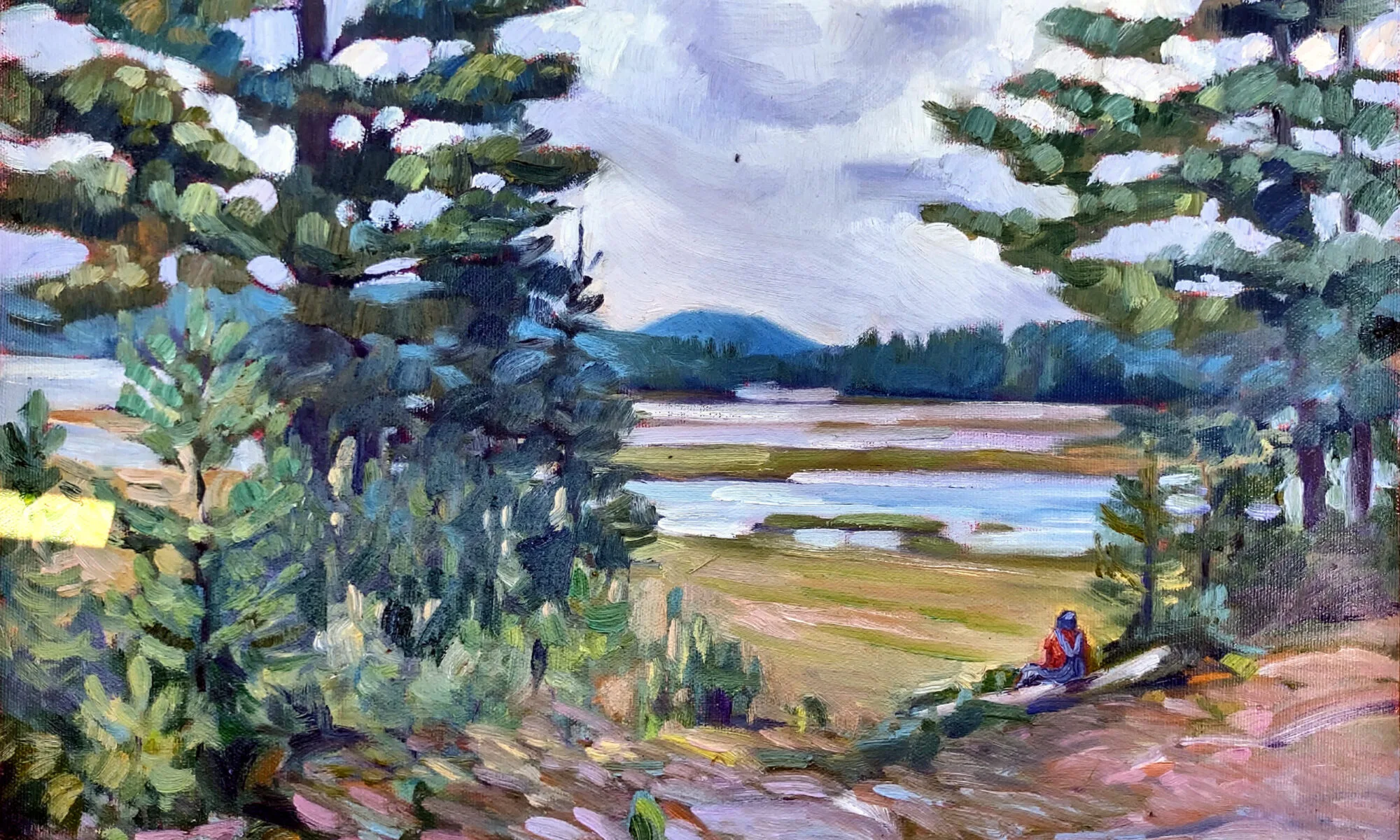It’s horrible to watch a city you love overdosing on hate and violence.
| High Falls of the Genesee, by Carol L. Douglas. |
I’d like you to meet my friend Ha. He’s a portly gentleman in his seventies, with a thick thatch of white hair and an irrepressible smile. His wife, Khanh, is a tiny, self-contained woman. Ha’s sister, Nu, is tall and rangy with an outsize personality to match. They run a small restaurant on lower Monroe Avenue in Rochester, NY. This is a part the city that has been described as “up and coming” for the past twenty years.
Ha’s family is from mainland China, and their trade was food service. Like many petit-bourgeoisie, they fled when it was clear that the communists had won the Chinese Civil War. The skill to roast a pig is international currency, and they resettled in Saigon. There has always been a large and successful Chinese population in South Vietnam. But by the late 1970s, ethnic Chinese were being violently suppressed, especially the capitalist ones. I once asked Nu how they managed to escape. She rubbed fingers and thumb together in the international symbol for payola.
 |
| North Rochester, by Carol L. Douglas. This is where my old church is. |
They were on the move again, this time by boat to an international refugee camp in Malaysia. One brother died before they landed. They have a worn photo of that landing; they are carrying what they can through the surf from a rickety cruiser.
From there, some went to Canada. Ha and his sisters came here. He met Khanh in a match arranged by her brother. They lost a child, they had another. Nu and her husband had a daughter. Two sisters died. They set up shop on Monroe Avenue, and all of them worked like navvies to establish the restaurant. They’re there from late morning until late at night, every day of the week. The first time I ever saw them take a day off was for their daughter’s college graduation.
Last year, Khanh and Nu were assaulted by a drunk. They were both seriously injured; Khanh suffered a broken hip. While they recovered, the restaurant was closed; there is no other staff. They don’t speak English so you didn’t see them on the evening news. Besides, inner-city violence is a tiresome fact of life, hardly newsworthy.
| Canal, by Carol L. Douglas. Rochester has its idyllic moments. |
They’d like to retire, but their assets are tied up in the restaurant. They had buyers in mind, a Vietnamese couple with a small jewelry store around the corner. These young people want to put their feet on the first rung of the American ladder themselves.
Fast forward to last month, when riots rocked Rochester. My friends got off lightly; their building was tagged, not torched. But buildings on either side of them burned, and their prospective buyers’ Hispanic neighbor was severely beaten trying to protect their shop for them.
This weekend another round of rioting closed down Rochester again. I have the greatest sympathy for Daniel Prude’s family. Anyone who’s lived with a mentally-ill loved one has to be thinking, “there but for the grace of God go I.” The circumstances of his death should be investigated—but not by a mob.
My friends are not oppressors; rather, they’ve fled two oppressive regimes in their lifetimes. They’ve been stoic about the current round of violence. They’ve seen worse.
This weekend, the damage was centered a few blocks north of their restaurant, in a much ‘nicer’ area. For twenty years, the city has marketed this neighborhood to middle-class professionals. Perhaps you think that’s okay, that somehow these people are the oppressors. Instead, they’re the people who’ve propped up the tax base in a moribund city.
The net result of Rochester’s 1964 riots was the flight of capital and brains from the city—“white flight,” they called it then. I have no idea what they’ll call it this time, but it’s horrible to watch a city you love convulsing in another overdose of hate and violence. Apparently, it has learned nothing whatsoever from its own history.
